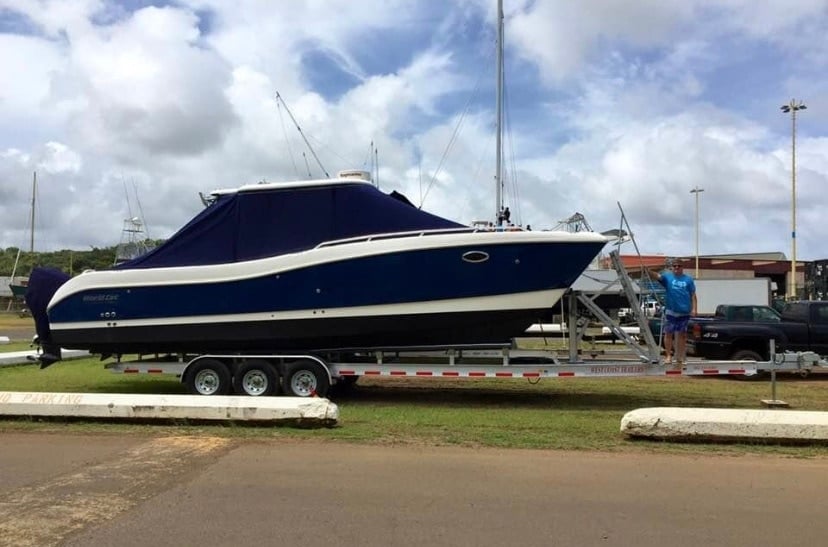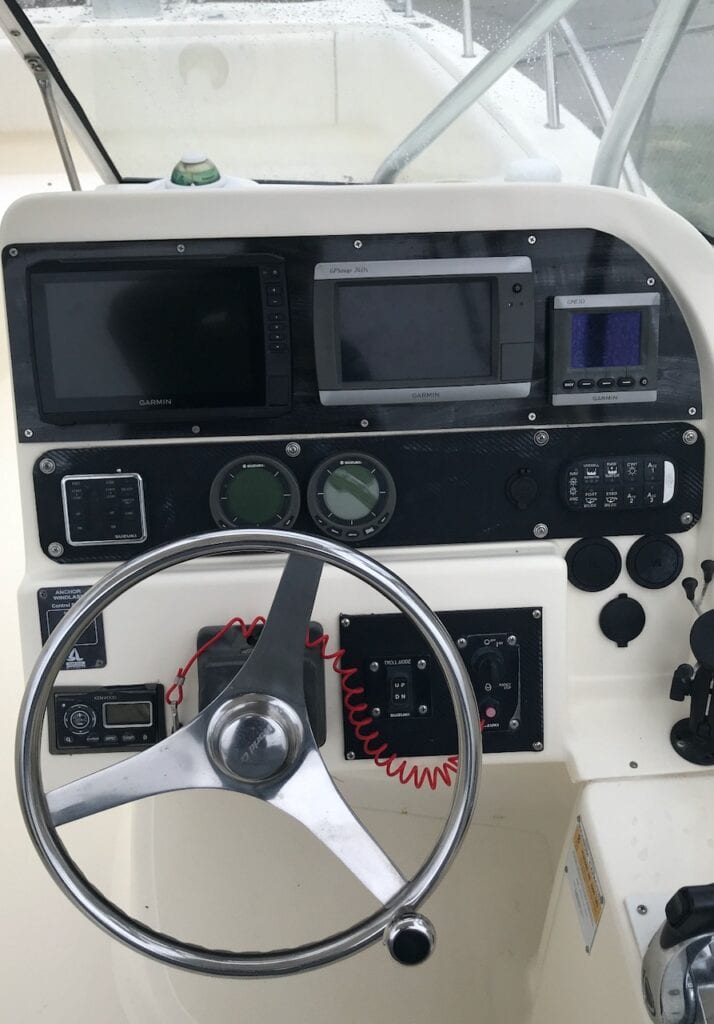What Boat Brands Hold Their Value?
Boats are like cars and electronics; they lose a percentage of their value once you take possession of them. However, I have learnt that not all boats are the same and some will lose more value over the years than others. I have researched a lot about boats and below is a complete guide on the resale value of boats.

Do Boats Hold Their Value?
Some of the boats with the best resale value include models from World Cat, Regulator, Tige, MasterCraft Boats, and Yellowfin. There are many factors that affect the resale value of individual boats, including the condition, size, location, and features.
Of all the factors that determine the resale value, condition is more important. Condition can be categorized into mechanical, rigging, and cosmetics.
Mechanical condition pertains the engine hours, performance, and the status of the duck and other mechanical components. In rigging, buyers check the sailboat mast shrouds, boom, sails, and stays. In the cosmetics, buyers consider the overall beauty of the boat.
If a boat looks well maintained, buyers will be willing to pay more for it. If your boat looks neglected, buyers will not offer much no matter the brand you have. As such, you need to take care of your boat for it to hold its value regardless of its brand.
There are hundreds of boat brands on the market and each depreciates based on the quality of its components and the care that you give it. Below is a guide on finding the value of a boat and how to ensure your boat holds its value.
What Affects the Price of a Used Boat?
The price of a new boat is set by the manufacturer and the dealers. This price comes in handy when you need to estimate the price of a used boat. You can check with your dealer or check the manufacturer’s website online to understand how much a new boat costs.
Check these factors to get the best boat for your family or sell your boat right.
Condition
From the relative price of a new boat, you can estimate the value of a used boat based on its condition, location, and accessories and features. The condition of a boat refers to its performance and functionality.
If you have never used a boat before, you can contract a surveyor to assess the condition of the boat. A surveyor looks at the engine and other mechanical components and then rides the boat to test its performance. You need to be in that ride to feel how the boat sails.
During the sale, you can listen for any strange noises, smoothness of the sail, and check the status of the deck among others. You can access more details about the boat from the U.S. Vessel Documentation Management System if the owner registered the boat. Ask the owner to present you with boat documents and search from the management system above.
After the performance test, you need to check the condition of the other parts of the boat, including the mast, boom, stays, and sails. You also need to look at the physical condition of the boat, including the wood trim, gel coat, and canvas among others. Buying a used boat in good condition is always a good option unless you’re looking for a fixer upper.
Location
The location of a boat determines the demand for these boats. In lakes, rivers, and the U.S. East Coast, there are so many boats that the price is depressed. You may have the best quality boat brand such as the Tige, but the inundated supply lowers the purchase price significantly. Again, if you try selling a boat away from water bodies, you will find no boat buyers and the price can depress up to 15% downwards.
If you use your boat in salty water, its resale value will go down faster than if you were to use it in freshwater. Salty water boats have more corrosion issues, and they will likely have worn parts. Buyers looking for used boats will be keener when buying a boat used in saltwater.
Nevertheless, some brands design their boats for use on salt. These boat brands will hold their value better when used in saltwater than brands designed for fresh water use. Brands such as Everglades, Yellowfin, Boston Whaler, Regulator, and Pursuit hold their value better when used in salty water.
Equipment
Even if you have an old boat, you can equip it with electronics to enhance its appeal. However electronics become obsolete and some buyers may not consider them much when valuing a boat. However, some advanced electronics such as satellite communications, AIS, radar come in handy in adding the resale value of a boat.
You can also add supplemental gear such as towing towers, outriggers, and baitwells to further raise the resale value. Buyers will want to see a boat that appeals to them and meets their intended purpose, so make the boat meet these two and it will have a high resale value.

Are There Any Databases for the Value of Used Boats?
If you need a used boat, you can check the NADA Boat Guides. The National Automobile Dealers Association has guides on all boats you would want, and they have price guides to help you. NADA is an association under J.D. Power, the renowned vehicle testing and review site.
From NADA Guides, boat owners will understand how to price their boats while buyers will compare the prices of boats based on their types, makes and models, and features among other factors. You can see boats from almost all manufacturers, and you will understand what goes into pricing a boat.
There are other databases such as the ABOS Marine Blue Book and the BoatWizard’s SoldBoats Database that you can use. These databases show several details on boats, but the NADA Guides are more reliable.
NADA tracks sales via brokers and dealers to set a price range for the used boats. From the sales, they can calculate a range for the price tag of a given boat. From their website, you can see prices for outboard motors, sailboats, watercraft, trailers, and powerboats among others.
The only disadvantage with NADA Guides is that their prices do not consider personal transactions. For those, you will have to do your research online.
Popular boat models such as World Cat and MasterCraft are easy to research on. You can find performance stats and common problems that can help you estimate its resale value. Boat user forums are a great place to check out how the brand performs and what you should worry about.
Boat owner associations and clubs are also great places to check out the performance of a boat. These clubs discuss user’s experiences using a specific boat model. You can see issues such as:
- Engine mount failure
- Corrosion of the fuel tank
- Steering irregularities
- Performance in salt water
- Range of equipment and many more
A broker can also help you calculate the value of a boat and point out any issues that the boat may have. Some brokers have handled several boat brands, and they know exactly what to consider when pricing a boat.
Note that, two boats from the same manufacturer and with the same age can have different prices based on fitted equipment and upgrades. Maintenance schedules and the season they are listed will also determine their value.
How Do You Calculate Boat Depreciation?
Depreciation starts the moment you pick your boat from the dealer or the former owner. In some cases, you boat will lose 5% the moment you pay for it or it may hold its value. After the first three years of depreciation, the rate of depreciation reduces slightly up to about the seventh year where fast depreciation starts.
There are three ways that your boat depreciates and this is why depreciation is calculated:
- The age of the boat – This is the easiest way to calculate the depreciation of a boat. You take the coat of the boat and then divide that by the number of the boat’s useful years. Boats last between 10 and 20 years with some lasting for longer than that. With the price of the boat and the useful years, you can calculate the annual depreciation. However, boats (like cars and electronics) do not depreciate at the same rate every year and another formula has to come in.
- Straight Line Depreciation – This seeks to find the value of a boat after its useful years. Straight Line Depreciation uses a formula to calculate the value of a boat when it is new and at the end of its productive years.
- Declining Balance Appreciation will help you find the rate at which a boat depreciates if you ever want to sell it before its useful life is over.
How Well Do Different Types of Boats Hold Their Value?
The average boat will be out in between 10 and 20 years. However, some boats will last longer than that, depending on how well you take care of it and where you use it. There are several factors that will determine how fast a boat loses its value and what it costs after its useful years.
Below are types of boats and how they hold their value:
Aluminum Boats
Aluminum boats are great when you need an affordable and lightweight boat. Because they are lighter, you can tow them with ease. These boats will also not sit deep in the water, thanks to their light weight.
They are, therefore, common as small boats that never get to venture on saltwater. As you may never get to use them in harsh conditions, they will last long. The boats also feature high quality aluminum sheets that resist corrosion.
Although the boats sustain dents, you may never see them with severe damages.
Fiberglass Boats
Fiberglass is a common material for small and large boats alike. The boats are more costly and they weigh more than aluminum boats. Fiberglass has the advantage of an appealing look, and it also takes paint better than aluminum.
These boats are commonly used in saltwater and other conditions that may reduce their lifespan. If these boats have polyester resin, they will have a shorter lifespan than if they had epoxy resin on them.
It is expensive to fix a hole on fiberglass – you can only add a patch and hope it holds.
Wooden Boats
Wooden boats are only available as small boats nowadays. These boats are not ideal when you need a durable boat with minimal maintenance. If you need a wooden boat, you have to be ready to paint it regularly and replace the boards.
Wood rots with time and the hardware that holds the wood together can rust or corrode from exposure to water. If you have a wooden boat, you need to be on the lookout for wood rot. A wooden boat might last for 10 years, but all the original boards may be changed over the life of the boat.
Motor Boats
The motor of a boat determines how long the boat lasts. If your boat has a gasoline-powered motor, the motor will last for between 1,200 and 1,800 hours and then you will have so many challenges maintaining the motor.
A diesel-powered engine lasts for about 5,000 hours before it starts breaking down every day. When your boat starts to break down, it will depend on how often you use it. If you use your boat every day of the summer, then it might not last as long as a boat only used a few days every summer.
Sail Boats
Sail boats have a lifespan that ends like that of motorboats. Sails can last between 3,500 and 4,000 hours if you take good care of them. If you sail often, you may need to replace the sail several times before the boat exhausts its useful life.
A sail boat may still have up to 73% of its value after 10 years, depend on how you take care of it.
Bow Rider Boats
These boats seem to depreciate faster than other boats. At the end of the first three years, the bow rider boat might lose up to 34% of its value. The depreciation will slow down after the first three years after which it will go up again after the seventh year.
Nonetheless, these boats can still serve you for more than 10 years with good care.
Cabin Cruiser and Cuddy Cabin
Cabin cruisers lose so much of their value the first three years, according to boat owners online. After that, the loss curve flattens. At the end of 10 years, the cabin cruiser may only have 40% of its value.
Cuddy Cabin boats hold their value for a long time. These boats will still have about 63% of their value after 10 years. In the first three years, the boat only loses about 13% of its value.
Fishing Boats
Fishing boats are designed to withstand harsh conditions. These boats can have aluminum or fiberglass bodies. The fiberglass fishing boat will only lose about 20% of its value after three years while the aluminum fishing boat loses about 21% of the boat’s value after three years.
Other boats such as pontoon boats and yachts will hold their value better than most other boats. The yachts can still have up to 73% of their value after 10 years.
Is a Boat Appraisal Necessary Before Buying or Selling?
A boat surveyor can help you determine the value of a used boat. If you have a large boat, you can contract up to three surveyors for the boat. Contact one for the hull and the boat’s general condition, another for the rig for sailboats, and another for the engine.
You can also go for a boat condition and valuation survey, which checks the hull, deck, and systems for costly repairs. Such a survey should expose any issues that the boat may have and allow you to value it accordingly.
If you are the seller, you need a pre-sale boat survey while the buyer asks for a pre-purchase boat survey. Sellers can fix minor issues that may affect the value of a boat.
Closing Thoughts
The type of boat determines how it holds its value more than its brand. For instance, a bow rider will lose its value more than a cabin cruiser. A cabin cruiser loses more value than a cuddy cabin.
The material of the boat will also determine how much value the boat loses. For instance, an aluminum fishing boat will lose more value than a fiberglass fishing boat. Sail boats and yachts hold their value more than most of the other boats.
Regardless of the type and the material, boat maintenance can enhance the value of a boat significantly. Your boat maintenance schedule will determine the rate at which parts corrode and wear out and how well the boat performs.
Besides maintenance, upgrades will also determine how much a boat depreciates. If you replace the old equipment with more advanced equipment, you increase the appeal and the value of your boat. Simple updates such as adding a fresh coat of gel coat will go a long way in maintaining the value of a boat.
There are a few brands that maintain their value, but I recommend checking the condition of each boat when shopping. This way, you will have the best value and enjoy sails with your family and your pet.
